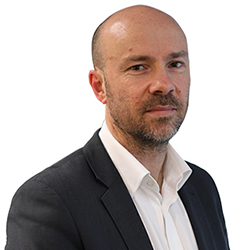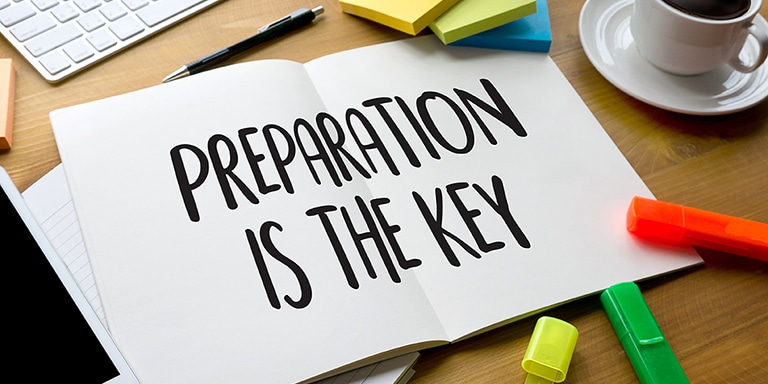If you have been following my advice, a board interview is now inevitable.
A board interview will be different from any previous interviews you have attended, and you must prepare accordingly. By ‘prepared’, I mean that you must be ready and able to ‘dare them not to appoint you’.
To begin with, you might have to acknowledge that you may not be a great interviewee. Most people aren’t as it is not something we do regularly. For others, it is just uncomfortable and their least favourite part of the appointment process. Others might feel entirely comfortable in an interview scenario but are still not getting appointed because they miss some fundamental elements.
Regardless of how you feel about board interviews they represent the make-or-break stage of the process. As such, understanding the 5 key elements of a successful interview along with practice, preparation and clarity are key.
Don’t tell them what they already know during your board interview
If you have made it to the Board Interview stage, it is safe to assume that the organisation believes that you are qualified for the role – after all, they have ready your CV, assessed your skillset, and invited you in for an interview. They simply would not have wasted their time if they didn’t think you had something to offer. This may seem obvious, but it is worth stating because I have seen too many candidates waste too much time convincing the interview panel of things they already know. But, being qualified and experienced enough to do the role does not guarantee an appointment.
Tell them what they want to know
Remember, there are five things that Chair and interview panel look for in a successful board candidate. They are:
- Prior corporate governance experience – having sat on or worked with boards
- Executive skills – your value at board level
- Networks – that the board can leverage
- Demonstrable passion – for the organisation, industry, sector and your contribution
- Cultural fit – commonalities (people, places or interests)
The first two should clearly be addressed in your application documents ( Board CV, Board Cover Letter and Board Supporting statement). That is not to say they won’t ask you about them during your board interview. But assuming they have read your application to prepare should focus on what else you offer. What is your unique value to the board? What can you deliver for them? As such, I think you can risk being rather cavalier in your responses to these sorts of questions and factually state the scope and scale of your experience and why it is relevant to the board and organisation.
The following three elements translate less well in written form. They need to be verbalised to be effectively articulated. They are also often complemented by body language, style and approach. To do this effectively, you must prepare for the interview – that means research.
Research the Board Role
Just do it. I know it is a bit of work, but research is just so important if you want to get appointed. By way of example, I recently advised one of my NED members to do this. He was applying for a paid Aged Care board role. He was well qualified and presented well. But it was a competitive process, and he was scheduled to attend a final panel interview with two other candidates. He needed to stand out.
The research did it, not his Google searches and skills and experience. Instead, it was the fact that he took my advice, booked a flight and visited the sites of the client. He spoke with their clients, their client’s families, and the staff; he ‘kicked the bricks’ of the buildings, did some mystery shopping, and spoke with past NEDs. He did everything he needed to do to separate himself from his competitors.
And it worked. How do we know? Because he is now on the board and reviewed all of the reports from the final panel interviews. He now discovered that his competitors were as experienced as he was, but the research he conducted made a difference that impressed them to the point where he was the obvious choice.
Research who is on the panel for your board interview
This information is usually given to you before the interview. It will usually be the Chair, but it could also include other board members – perhaps the CEO, a recruiter or an HR specialist. It is essential that you know who you will see during the interview. You should ask for this information if you are not provided with it.
Knowing who will interview you means that you can research them. You should consider their role on the board or within the organisation and where else they might be a board member. Look into professionally what they have done before, what their interests are and, importantly, what commonalities you have (including shared contacts).
Once you have this information, developing rapport with the interviewer(s) is far easier. You do this for two reasons:
- Studies have found the more an interviewer likes you, the more likely they are to hire or recommend you (this works for recruiters) and
- Remember the fourth and fifth elements of what Chairs look for – Demonstrable Passion and Cultural Fit. Research demonstrates that they are not a risk and you are passionate about what they do.
Separate yourself from your competitors and dare them not to appoint you.
Over and over again, I have led board interviews and see how even the most qualified candidates stumble and fail. They often failed because they could not demonstrate why they stood out from other equally qualified candidates. This primarily occurs due to a lack of preparation and focus on delivering responses that address their decision-making process.
Taking this advice, here’s what a member wrote to me this morning following a Board Interview Session we had together in preparation for an interview today… ‘The interview went well and the approach made a real difference – made it much more strategic and conversational, and relevant.’
Don’t be distressed if you don’t like interviews or don’t excel at them. Few do. But it doesn’t have to be that way. Like many things in life, solid preparation prevents poor performance. If you need a hand preparing for an interview, I offer a 1:1 board interview preparation service to help. They are transformational! If you would prefer to do this work by yourself, our Board Search Training Series will step you through the process as part of our Executive Service.
Related Articles
How to write a Board Supporting Statement for your application
In-Person board research can set you apart from ALL the other candidates
About the Author

David Schwarz is CEO & Founder of Board Direction – Australia’s leading board advertising and non-executive career support firm. He has over a decade of experience of putting people on boards as an international headhunter and a non-executive recruiter and has interviewed over one thousand non-executives and placed hundreds into some of the most significant public, private and NFP roles in the world
Share this article on your favourite platform!


